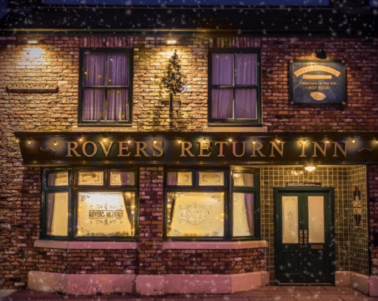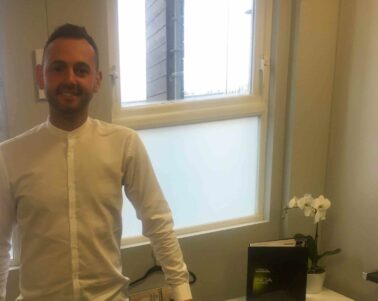
MediaCityUK opens first ever hair salon
MediaCityUK’s resident beauty therapist, Sam Marshall, The Beauty Guru, is expanding to provide the city with its first full-service hair and beauty salon.
*Findings spotlight the power of the arts and culture at a time when arts funding and education are under pressure *Lowry generates £90m for local economy and community outreach programmes deliver £22.4m in social value
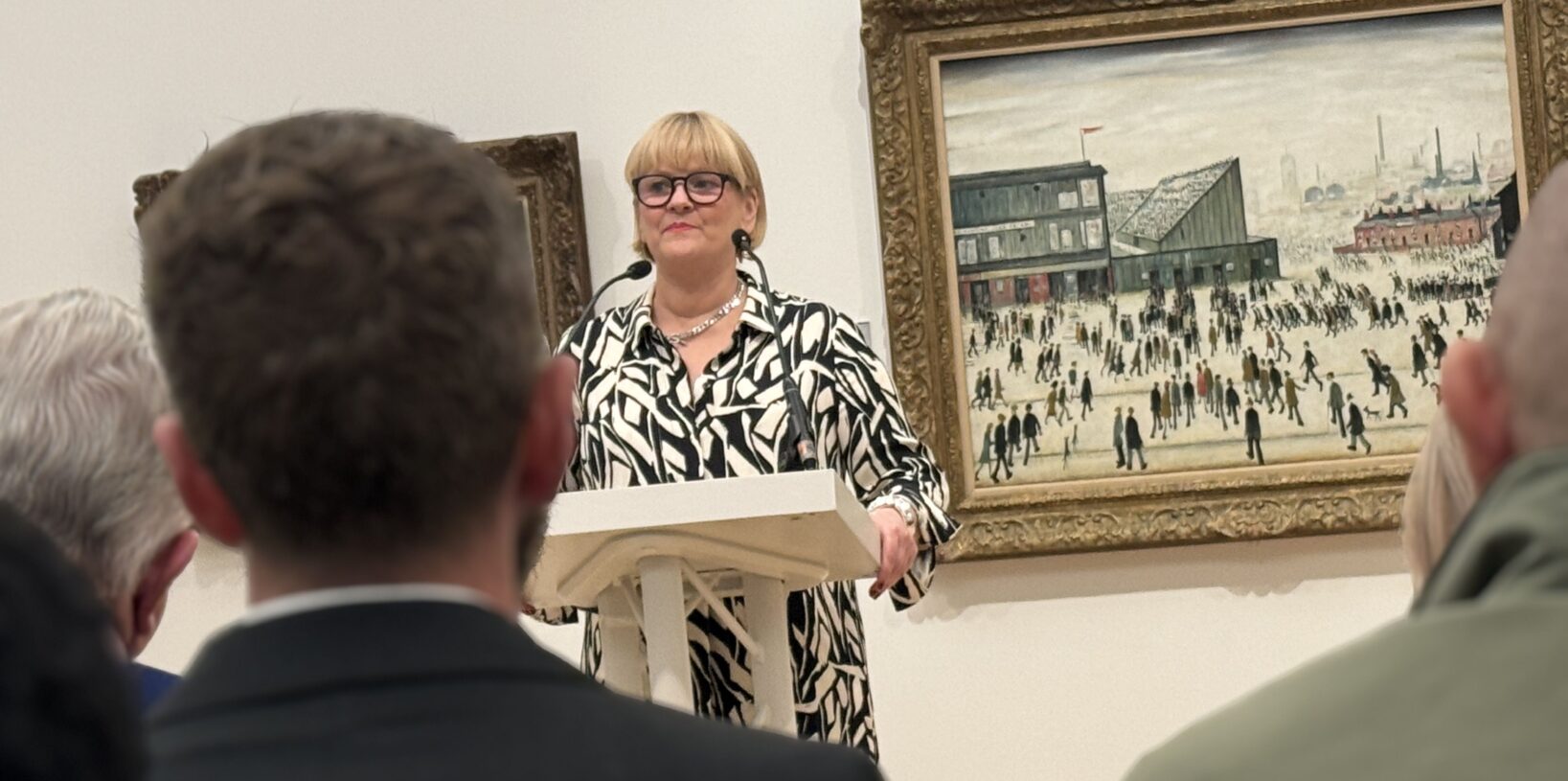
The Lowry is the cultural and community heart of the Salford Quays regeneration project MediaCity and the flagship arts and theatre venue in the North of England.
To mark the start of the 25th year since opening, The Lowry has published a social and economic impact report from leading economic and planning consultancy, Lichfields, to evaluate its relationship with the local community and impact on the economy.
The findings uncover the vital role The Lowry plays in the community and economy of Salford; first, as the cultural institution at the centre of one of Europe’s largest and most successful regeneration projects.
To today, as a blueprint for how arts, culture and creativity can engage hard to reach communities at a moment when communities and funding for the arts are under unprecedented strain.
A catalyst for the economic regeneration of Salford Quays
As the most visited attraction in Greater Manchester, in 2022/23 almost 860,000 people visited The Lowry. Every year it delivers a programme of shows and exhibitions by acclaimed local, national and international artists from Birmingham Royal Ballet’s Swan Lake and the National Theatre’s War Horse, to Britain’s Got Talent.
The Lowry was created to draw people and organisations around the institution. Its presence was a critical factor in the decisions of the BBC and ITV Studios to move to Salford Quays, kicking off one of the most successful regeneration projects in Europe, MediaCity.
While local authorities around the country are cutting funding for arts venues and theatres, The Lowry stands as an example of how arts institutions boost local economies and add value to communities. The Quays regeneration has been an unmitigated success, and today contributes £1.3 billion in GVA to the economy, 99% more than in 2001. It is now the home of some of the UK’s most exciting creative, tech and media organisations from incubators and start-ups to established businesses such as Ericsson and Kellogg’s.
The Lowry itself is central to the region’s tourism economy, the report finds that it generates almost £90m in visitor spending in the North West every year and supports 649 jobs.
Julia Fawcett, CEO, The Lowry commented:
“Before The Lowry, the Salford Quays had been empty and derelict for close to two decades. The revitalisation of the area in the 25 years that followed has been nothing short of miraculous. Today it pulses with life; a vibrant place where culture and creativity and people and business come together.
The Quays continues to grow and evolve, but The Lowry is still the anchor. Created to be the cultural hub around which a community was built, it is evidence not just of the rejuvenating power of art and culture, but the role it plays in shaping society and enriching our lives.
The Lowry serves as a lesson in the economic power of arts and culture and the importance of taking the long view, signalling to those reducing arts investment that these short-term savings will cost us all in the long-term.”
A case study in how cultural institutions can engage with communities
The Lowry is more than an arts venue and its education, employability, volunteering, and community engagement programmes target some of the hardest to reach people and families in the Salford area.
At a time when the UK is facing a cost-of-living crisis, communities are reeling from the covid pandemic and austerity, The Lowry uses art and creativity to support people who are disadvantaged, underserved and excluded.
The impact report shows that in 2022/23 alone, 22,000 individuals participated in Lowry programmes, including 15,000 young people and 3,000 people with special educational needs or disabilities. Over 3,200 sessions were held across all of The Lowry’s learning and engagement programmes, totalling over 6,000 hours and delivering an estimated £22.4m in social value.
One of The Lowry’s many community initiatives is the flagship “Arts for Social Change” programme which reaches out to young people experiencing difficulties in life. Arts for Social Change gives young people the opportunity to express themselves through art, whilst learning new skills, improving their wellbeing, reducing social isolation and anxiety, and accessing potentially life-changing opportunities. In 2022/23, a total of 580 Arts for Social Change sessions were held with 895 young people participating.
The Lowry delivers its impact with unusually low levels of public funding. In 2022/23 only 6% of The Lowry’s income came from public sources. This compares extremely favourably with other Arts Council England National Portfolio Organisations [NPOs], which rely on average on close to 50% in public funding.
Sir Rod Aldridge OBE – Chairman, The Lowry, Aldridge Foundation commented:
“There are many challenges that local people of all ages are facing – particularly against a backdrop of the cost of living crisis. The Lowry is seen as a haven, a place they can feel safe in and want to visit, and there’s an incredible combination of things happening here that people can feel like they are a part of.
The impact of the learning and engagement programme is very special and has always been central to The Lowry’s DNA. Access to arts and culture is crucial for all young people, not just future artists, as it fosters creative expression, analytical thinking, and confidence. If we want to see the UK succeed in the modern economy, policymakers must look again at arts education and they will find institutions like The Lowry are ready and willing to play their part.”
Carlos Acosta – acclaimed dancer and Director the Birmingham Royal Ballet and Acosta Danza, said:
“I cannot praise the Lowry enough for its outstanding commitment over an incredible 25 years, not only to presenting the highest quality dance in its annual programme, but for its far-sighted approach to breaking down barriers, building community engagement and developing the skills and talents of young people.
As Director of both Birmingham Royal Ballet and Acosta Danza, I couldn’t be happier, when touring to the North West, to have the opportunity to work with the remarkable team at the Lowry.”
Comedian Peter Kay said:
“Happy 25th birthday to The Lowry Theatre. I’ve many happy memories from both being a punter and a performer. A remarkable venue. It remains close to my heart and more importantly close to my house.”
Comedian Jason Manford commented:
“The Lowry has been part of my life since it was first built. As someone born in Salford and as a Salford University drama student at the time, it felt like our city was finally getting the respect it deserved. I’ve been lucky enough to perform in all of the spaces from the Studio up to the Lyric, from music gigs to comedy, even spending a whole Christmas there in Chitty Chitty Bang Bang & I’m back at least a few times a year to watch shows with my family. The Lowry is the theatrical equivalent of ‘Build it, and they will come”. I’m excited to see what it does over the next 25 years.”
Tim Bell – Senior Creative Producer of Complicité said:
“The Lowry is a cultural powerhouse. A vital venue, an essential place for northwest audiences to meet the best quality artistic work. We were delighted to partner with The Lowry as a co-producer on our international touring production of Drive Your Plow over the Bones of the Dead in 2023. They introduced Complicité to new audiences from Salford to San Francisco; their hospitality extended to facilitating the filming of the piece during its run in the Lyric, broadcasting it live across the world. The Lowry’s team are dedicated, brave, passionate and adventurous – just like the work they present. Happy 25th!”
Richard Coburn – Senior Director, Lichfields:
“In my many decades as an economic consultant, I have never seen a such a deep commitment to communities and young people as profound as that of The Lowry. It stands as a powerful example of how arts and culture can transform localities lacking investment into thriving new places, significantly enhance lives, and generate substantial economic benefits”.

MediaCityUK’s resident beauty therapist, Sam Marshall, The Beauty Guru, is expanding to provide the city with its first full-service hair and beauty salon.
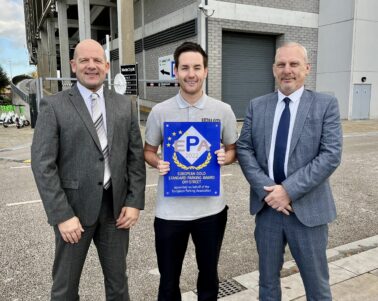
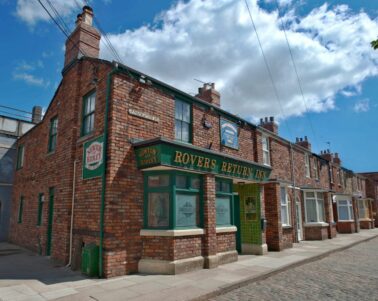
Have you always told a good tale, yapped a great yarn, shaped a great saga? Have you ever wondered what…
